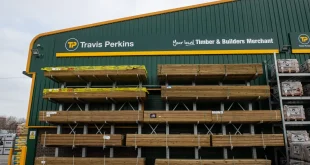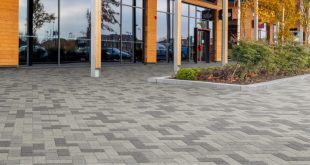Gareth Osborne from Tarmac’s Cement and Lime business looks at corporate social responsibility and how merchants can best implement it.
It’s not all about the bottom line: companies who give back can have better employee loyalty, engagement and productivity.
Trust and business growth go hand-in-hand, and those with a successful history will have stayed true to the core values that their customers have come to know them for. As a result, many companies are increasingly incorporating corporate social responsibility (CSR) into their business plans, implementing initiatives such as using alternatively fuelled transport and altruistic learning programmes. In 2017, almost 80% of the world’s top 250 companies produced an annual CSR report – 13% more than in 2015, which positively reflects on the growing accountability of top companies (KPMG, 2017).
Notably, the next generation of talent seem to understand the power of a strong moral compass. According to a Nielsen survey, 73 percent of Millennials prefer to work with socially responsible companies. More so, 81 percent of Millennials expect their brands to make a public commitment to good corporate citizenship. These numbers indicate marketing teams need to shift their tactics to reflect the changing tides.
Remaining authentic
Ultimately, CSR goes beyond looking solely at business benefits, to include a wider commitment to building a better society. This can be achieved through actual business practices, or through “extracurricular” activities such as charitable donations or people volunteering projects.
At Tarmac we recognise the value that can be achieved from undertaking these types of projects, both from the employee’s perspective – in improving morale, and by being a business employees can feel good about – and from the perspective of other stakeholders, who are increasingly monitoring and checking their suppliers and associated organisations.
Of course, you have to be authentic while completing these practices. An example being our latest commitment to Band of Builders, a charity that supports tradespeople during their hour of need.
Tarmac supported Band of Builders’ latest project by providing both sponsorship and Blue Circle packed cement products to help transform the home of a widow in Lennoxtown, Scotland. The charity carried out work to renovate the family home of Elaine Dunphy and her four children following the death of Elaine’s husband, Steve. Determined to help, the group pulled together more than 50 trades experts to turn the half-complete house into a family home.
By building these types of relationships and helping those in need, we can provide a positive contribution to the communities in which we operate – giving even more meaningful work to employees and stimulating higher levels of morale, engagement and productivity.
Mutual benefit
So, what makes a successful CSR campaign?
A clear mutual benefit for both the company and charity is a vital element. To measure success, it’s important to have shared goals and make sure everything is delivered with both partners in mind. Likewise, it’s not always easy for charities to work alongside a business, so having a good cultural fit between the organisations is also important.
If a charity has access to relevant resources such as employees who understand their sector, needs and requirements, the entire programme can be optimised, and skills can be leveraged.
A good example is LEGO’s Build the Change initiative which started with a letter from a nine-year-old. With an overall goal to emphasize that children’s ideas and creations are the inspiration for the future, the group organising a series of events to give children a voice to tackle challenges.
Another good example is Ikea’s Brighter Lives for Refugees campaign. In 2017, Ikea funded a solar farm to bring renewable energy to 20,000 refugees. Each family can now power a fridge, TV, fan and lights, as well as charge their mobile phones – essential for contacting family overseas.
Mutual benefits aren’t limited to culture and reputation either. A CSR campaign can bring positive contribution to a business’ current practices and marketing strategy. For example, Tarmac’s business support of Band of Builders comes at a time where the business is shaping its core family values into a ‘One of the Family’ campaign for its Blue Circle packed cement range, highlighting that when it comes to having good, solid family values, Blue Circle has bags of them.
The new campaign gives each individual product a family characteristic that is aligned to both the product’s features and the benefits they bring to the builders who use them.
Being conscious
As the world changes and our attitudes adapt and evolve, it’s important to be proactive in supporting and addressing issues affecting wider society. It’s never a secret that our future workforces have their fingers firmly on the pulse when it comes to wider ethical issues and obligations, and this is only going to get stronger. There has never been a more prominent time to plan and execute a good CSR campaign, no matter how big or small it might be.
 Builders Merchants Journal – BMJ Publishing to Builders Merchants and the UK merchanting industry for more than 95 years
Builders Merchants Journal – BMJ Publishing to Builders Merchants and the UK merchanting industry for more than 95 years



